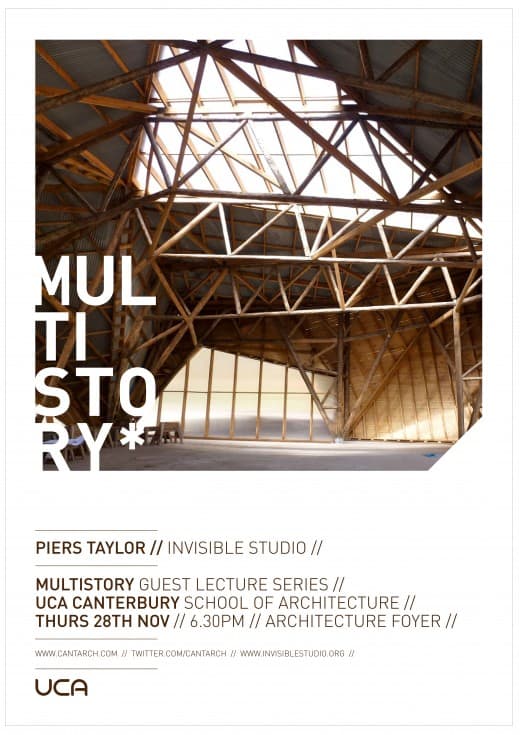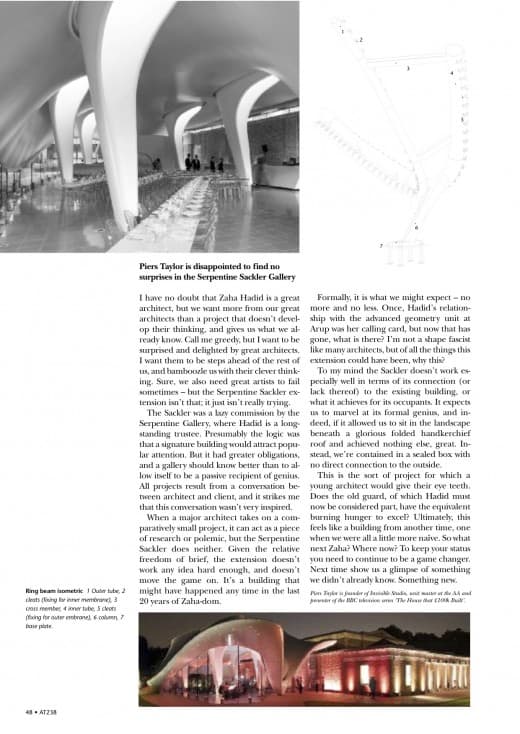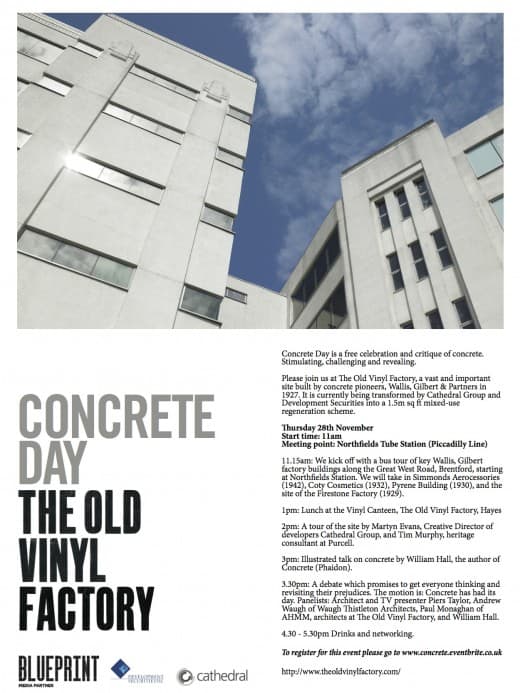Planning Committees: Myopic Obscurantists
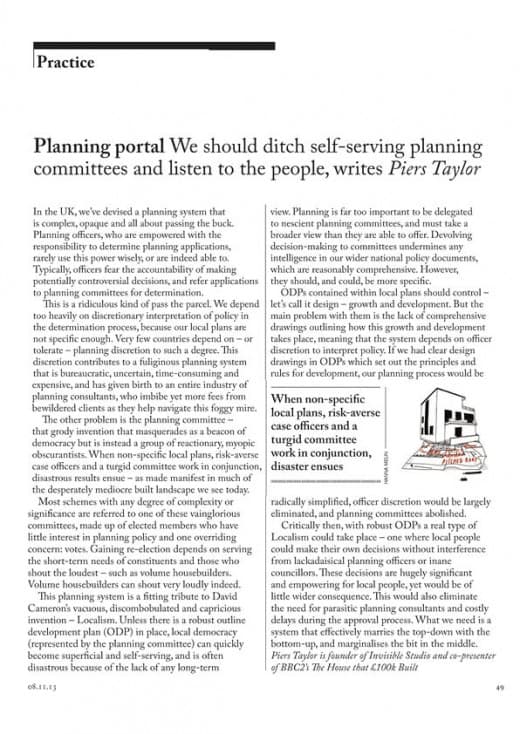 Full unedited text of Piers Taylor’s AJ Planning Column here:
Full unedited text of Piers Taylor’s AJ Planning Column here:
In The UK, we’ve devised a planning system that is over-complex, overly opaque and is all about passing the buck. Planning Officers, who are empowered with the responsibility to determine planning applications in a delegated fashion rarely use this power wisely, or indeed, are able to. Typically, officers fear the accountability of making potentially controversial decisions and refer applications to planning committees for determination.
This is a ridiculous kind of pass the parcel. We depend too heavily on discretionary interpretation of policy in the determination process, because our local plans are not specific enough. Very few other countries depend on – or tolerate – planning discretion to such a degree.
The significance of this discretion and the power it carries is immense and also part of the problem with our current system. It contributes to a fuliginous planning system that is overly bureaucratic, uncertain, time consuming and expensive and has given birth to yet another group of hangers on: planning consultants, who imbibe yet more fees from bewildered clients as they help navigate this foggy mire.
The other problem is the Planning Committee – that grody invention that masquerades as a beacon of democracy but is instead a group of reactionary myopic obscurantists. When non specific local plans, risk averse case officers and a turgid committee work in conjunction, disastrous results ensue – as made manifest in much of the desperately mediocre built landscape we see today.
Most schemes with any degree of complexity or significance are referred by a case officer to one of these vainglorious committees, made up of elected members who have little interest in planning policy and one overriding concern – votes. Winning votes at a local level and gaining reelection depends on serving the short term needs of constituents and those that can shout the loudest – such as volume housebuilders. Volume housebuilders can shout very loudly indeed.
This planning system is a fitting tribute to David Cameron’s vacuous, discombobulated and capricious invention – Localism. Unless there is a robust adopted Outline Development Plan in place, local democracy (represented by the planning committee) can quickly become superficial and self-serving, and is often disastrous because of the lack of any wider or longer term view.
Planning is far too important to be delegated to nescient planning committees, and must have a broader view than they are able to offer. Devolving decision making to committees undermines any intelligence in our wider national policy documents, which are reasonably comprehensive. However, they should, and could be more specific.
Outline Development Plans contained within Local Plans should control – let’s call it design – growth and development. The main problem with Local Plans and ODPs is the lack of comprehensive drawings, which set out in outline terms how this growth and development takes place, meaning that the system depends on officer discretion to interpret policy, leading to the convoluted system that we have. If we had clear and categorical design drawings in ODPs which set out the principles and rules for development our planning process would be radically simplified, officer discretion would be largely eliminated, and planning committees abolished.
Critically then, with robust ODPs, a real type of localism could take place – one where local people could make their own decisions without interference from lackadaisical planning officers or inane councillors. These decisions are hugely significant and empowering for people, yet would be of little wider consequence. This system would also eliminate the need for parasitic planning consultants and costly delays during the approval process.
Planning cannot happen without a wide and long term view. What we need is a system that effectively marries the top down with the bottom up and marginilises the bit in the middle. More specific ODPs, less officer discretion and more individual freedom is the answer.
What next Zaha? Where now?
I’ve no doubt Zaha is a great architect, but we want more from our great architects than another cursory project that doesn’t develop their thinking in any way, and gives us what we already know.
Call me greedy, but I want to be surprised and delighted by great architects. I want them to always be several steps ahead of the rest of us, and bamboozle us with their clever thinking. Sure, we also need great artists to fail too – but the Sackler extension isn’t really failing; it just isn’t really trying.
The Sackler feels lazy in so many ways. It was a lazy commission by the Sackler, where Zaha is a trustee. The Sackler’s logic was presumably her commission would encourage lay visitors, rather than anything else. But they had greater obligations than just this, and a gallery should know better than to allow itself to be a passive recipient of genius. Any project – any interesting project – is the product of a conversation between architect and client, and it strikes me that this conversation wasn’t very inspired. Maybe Zaha isn’t used to being challenged – but being challenged is surely part of the delight of the best interactions with clients?
The point, of course, of a small project for a major architect is to act as a piece of research where either something – anything – is explored, or where it acts as a piece of polemic – but this is neither. With a small project from an enthusiastic client, you are so free from the conventional constraints – space, money, restrictions on experimentation – whatever – and given the relative freedom of brief from the Sackler in terms of what it had to do, the extension doesn’t work any idea hard enough. It’s not particularly clever.
Zaha’s oft praised greatness is more reason for not making allowances. One definition of a great artist (and part of the responsibility they have to retain this status) is someone who keeps pushing at the boundaries of what is possible and moving the game on. But the Sackler doesn’t move the game on. It’s a building that might have happened any time in the last 20 years of Zaha-dom. Formally, it is what we might expect – no more or no less. It is an instant Zaha by numbers. Once, Zaha’s relationship to the advanced geometry unit at Arup was her calling card, but now that has gone, what is there? I’m not a shape fascist, like many architects, but of all the things this extension could have been, why this?
The Sackler doesn’t even really work very well in terms of the lack of connection to the existing gallery (its main raison d’etre), or what it achieves for the occupants. It expects us to marvel at its formal genius, and indeed, if it allowed us to sit in landscape under a glorious folded handkerchief roof and achieved nothing else – great – but instead, we’re forced to be contained in a rather oppressive and mean sealed little box with a clunky soffit and no connection to the outside. Despite what Zaha may think, walls of glass are very much a physical barrier.
Materially I feel a little cheated, too – because it doesn’t really have materials – or at least doesn’t use materials interestingly. Materials were never really Zaha’s thing, granted, but here, the materials are little more than an inconvenience to her – particularly when they don’t go round corners very well.
The Sackler extension is the sort of project that a younger architect would have given their eye teeth for, used to demonstrate clever thinking, and show the world what they were capable of. It makes me wonder whether the old guard, of which Zaha is now part – have the equivalent burning hunger to excel.
Ultimately, it feels like a building from another time, one when we were all a little more naïve. But that was then – and this is now. What next Zaha? Where now? To keep your status you need to continue to be a game changer. Next time, Zaha, show us a glimpse of something we didn’t already know. Something new.
This review of Zaha Hadid Architect’s Sackler Gallery extension, for Architecture Today, by Piers Taylor, appears in the October issue of Architecture Today.
Stillpoint, Dusk
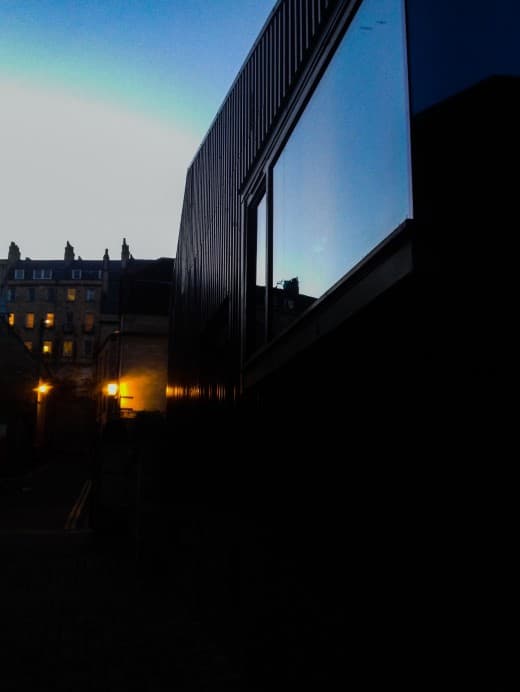 Dropped by Stillpoint last night. Was hoping that the lights would be on to get some shots… next time.
Dropped by Stillpoint last night. Was hoping that the lights would be on to get some shots… next time.
Categories
- 100k house
- Articles
- brexit
- Caretaker's House
- Christchurch
- current
- East Quay Watchet
- film
- ghost barn
- Glenn Murcutt
- Heroes
- Hooke Park
- House in an Olive Grove
- Invisible Studio
- longdrop
- Mess Building
- Moonshine
- On the Road Again
- passihvaus
- piers taylor
- piers,taylor
- press
- Projects
- Riverpoint
- Self Build
- Stillpoint
- Studio Build
- Studio in the Woods
- talks
- Trailer
- truss barn
- Uncategorized
- Vernacular Buildings
- watchet
- Westonbirt
Tags
- caretaker's house
- design and make
- Design Build Workshop
- Design Make
- east quay
- east quay watchet
- Glenn Murcutt
- green timber architecture
- Hooke Park
- Hooke Park Big Shed
- Invisible Studio
- Low Impact House
- moonshine
- Onion Collective
- piers taylor
- Piers Taylor Architect
- piers taylor invisible studio
- self build
- self build architect
- Starfall Farm
- Stillpoint Bath
- studio in the woods
- Sustainable Architecture
- The house that £100k built
- timber architecture
- Timber House
- timber workshop
- visible studio
- westonbirt architecture
- westonbirt tree management centre
